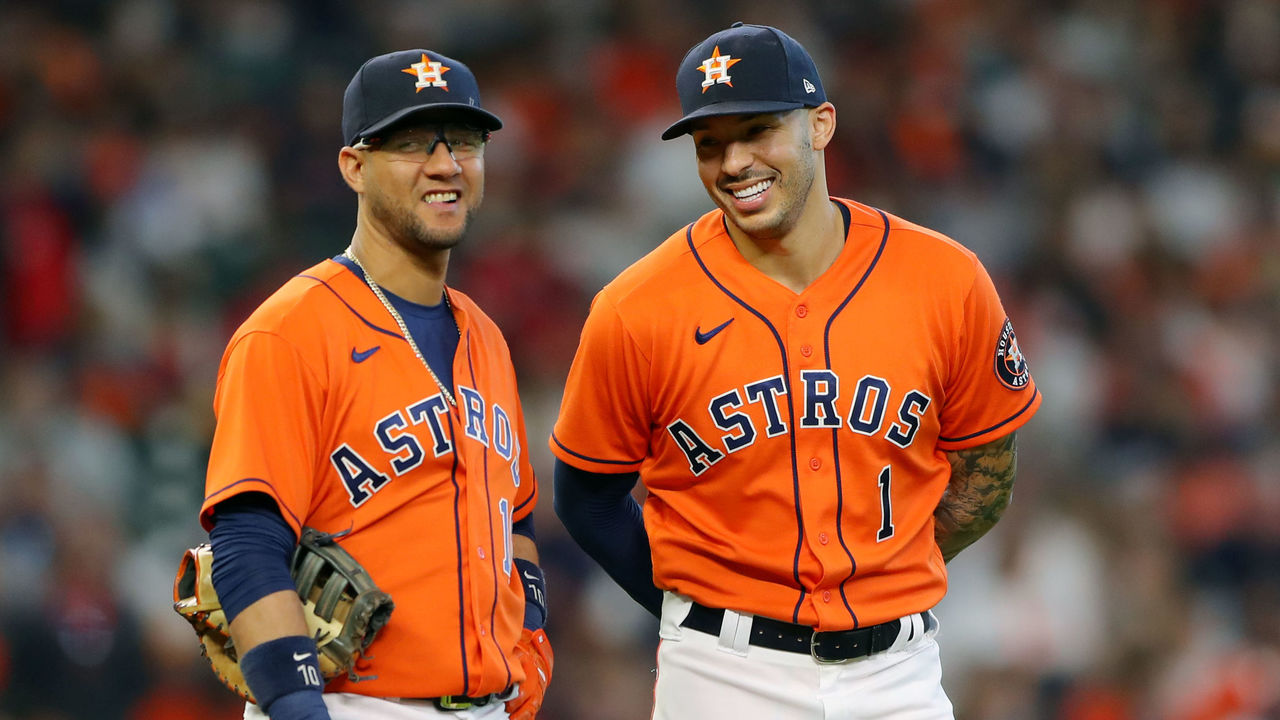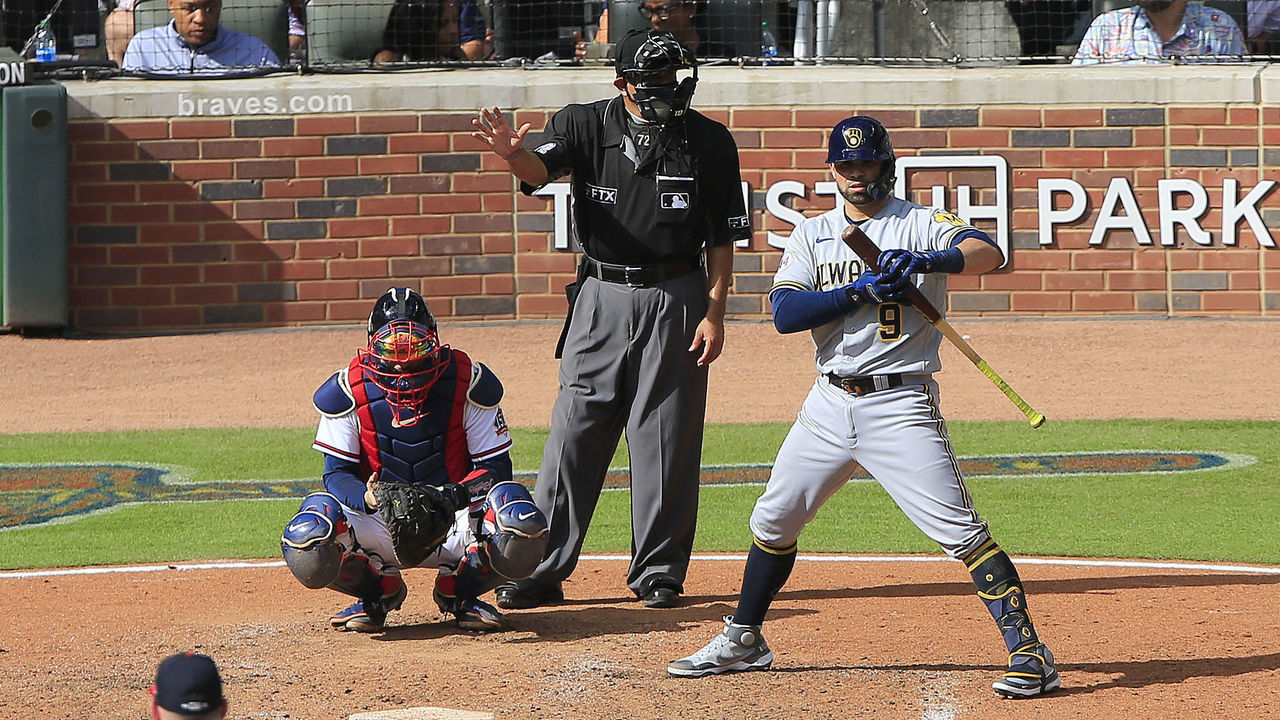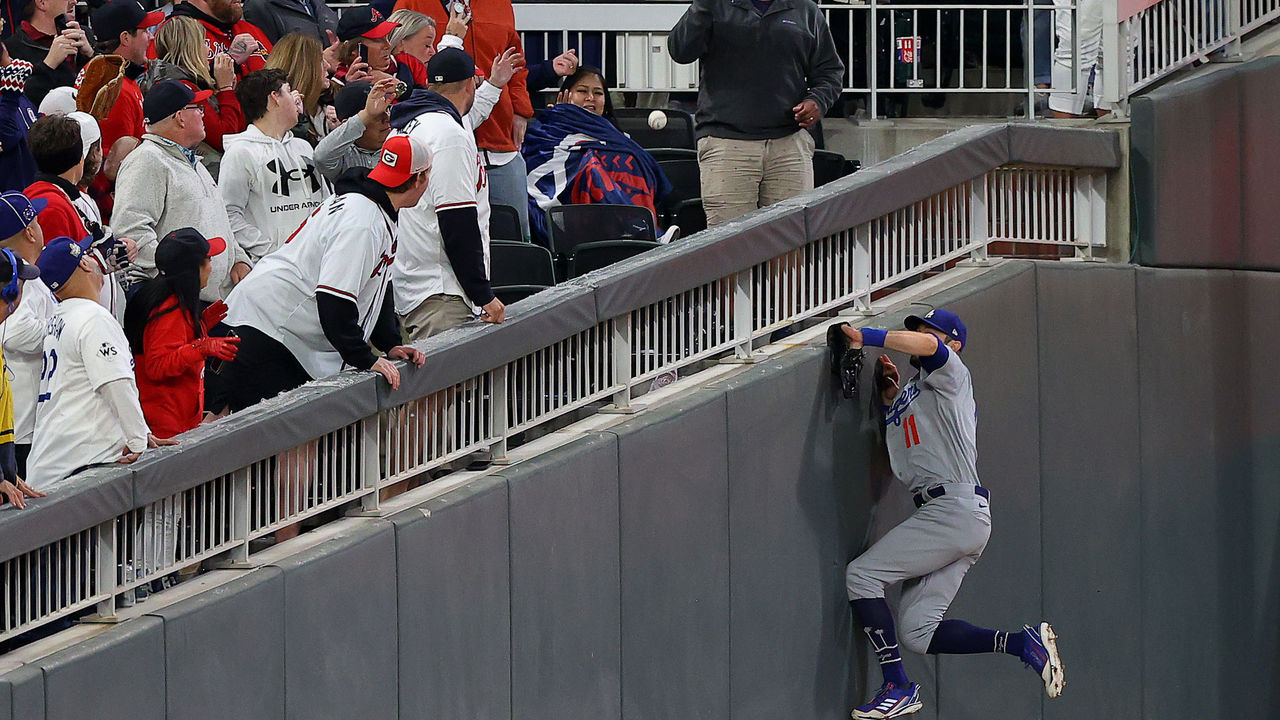Why postseason baseball games are growing interminable
If you feel like these postseason games are dragging along more than ever, you're not wrong. Major League Baseball's playoff-game settings are set to turtle mode.
Postseason contests have gradually slowed over decades, but they've just about crept to a halt in recent years.
Consider that the average time of the first postseason games in the 1903 World Series was 1 hour and 48 minutes or 1.8 hours. Playoff game lengths gradually increased to 2.5 hours in the 1960s, to 2.75 hours in the 1980s, to 3.25 hours in the 2000s. Including Tuesday's contests, the average this season stands at 3.6 hours - 3 hours and 38 minutes, to be exact.
A postseason game today is twice as long as those first played between AL and NL teams in the early 20th century when baseball was North America's first mainstream professional team sport.
From 1960 to 1990, the average time of a nine-inning postseason game increased by 20 minutes. But in the 30-plus years since 1990, it's increased by 40 minutes.
The Boston Red Sox and Houston Astros opened their ALCS series with a nine-inning Game 1 that took 4 hours and 7 minutes to complete. It was outdone by Game 2, which took 4:08. Game 3? A brisk 3:16. Game 4? A not-so-brisk 4:04.

There are those who don't believe baseball should be governed by a game clock, a pitch clock, or otherwise. But it must be disconcerting for the league office that the television ratings for a deciding game between the 107-win San Francisco Giants and 106-win Los Angeles Dodgers last Thursday were dwarfed by an NFL regular-season contest between the Tampa Bay Buccaneers and Philadelphia Eagles. National ratings have long been on a general downward trend for baseball, but MLB's TV ratings have also declined on a regional basis compared to 2020 and 2019, according to Forbes.
Pace of play might matter when trying to grow the game.
So what's going on?
One issue is the number of batters who step out of the box between every pitch to adjust batting gloves, take practice swings, or go through other rituals. Batters didn't do that in the 1980s. A few years ago, Grant Brisbee, then of SB Nation, did a granular study comparing the pace of a 1984 game versus one from 2014. The two games had very similar characteristics: score, number of pitches thrown, number of hits, and number of pitching changes. The 2014 contest was 35 minutes longer.
During my stint as a beat reporter covering the Pittsburgh Pirates in 2014, I used a stopwatch during one game to record every time a batter stepped out of the box with both feet.
In that nine-inning game, which took 3 hours and 37 minutes, batters were outside the box for a combined 39:51. There was likely a margin of error with my thumb on a stopwatch, but you get the point. Batters stepped out 190 times that night for an average length of 12.6 seconds.

The league and players' association briefly took steps toward compelling batters to stay in the box in 2015, but MLB quickly relaxed enforcement, and pace-of-play fines are rarely issued anymore.
Many of the reasons why the average regular-season game time reached a record 3 hours and 11 minutes this year are the same reasons the postseason game is slowing, including replay reviews and slowing pace between pitches. But in the playoffs, the game dawdles even more in ways that go beyond longer TV commercial breaks.
The most apparent change from the regular season is the number of pitching changes. Relievers generally work more slowly than starters. Teams like the Los Angeles Dodgers and Tampa Bay Rays have even begun games with relievers, or openers, this postseason.
Consider that throughout baseball history, each additional pitcher used in a nine-inning game adds, on average, about 10 minutes. (After 13 total pitchers used, the curve begins to wobble a little.) That partly comes down to coaches and managers making mound visits, relievers working more slowly, and the nature of games that feature plenty of pitching changes (lots of runs and baserunners).
Through Tuesday, individual teams used five or more pitchers 38 times this postseason. That ranks fifth all time and there are still the LCS and World Series rounds to get through. There were 48 such games in 2019 and 44 in 2018. In 1995, the first year of the wild-card era, teams used five-plus pitchers 22 times. Even the three-batter rule, implemented in 2020 to try to limit pitching changes, hasn't seemed to stem the tide.
Beyond these common complaints, there's another factor quietly slowing games: foul balls.

In 2017, foul balls outnumbered balls in play for the first time in the regular season, according to Baseball Reference data that dates back to 1988. I wrote about that trend before the 2019 campaign, and fouls have outnumbered balls in play each year since. In 2019, a record 28.2% of strikes were foul balls. There were more than 126,000 total foul balls hit in the majors in every full season since 2016. This year, 28.1% went foul, compared to 26.9% that were put in play.
And foul balls are occurring at an even greater rate in the postseason.
Through Sunday, 30.4% of strikes were foul balls, which would be a record over a full postseason and the first time it eclipsed 30%, according to Baseball Savant. Fouls likely occur more often in the postseason because pitchers' stuff is a bit better and there is greater incentive to avoid giving up precious outs. Fouls are contributing to the game's increasing dead time.
Foul balls also increase pitch counts and the wear and tear on pitchers. Tampa Bay had the second-highest, single-game foul-ball count in Baseball Savant's database earlier this postseason when the Rays fouled off 58 pitches against the Red Sox. Entering Monday, 6,721 pitches were thrown this postseason, and 1,373 were fouled away. That's great for souvenir hopefuls, not so great for those looking for action.
Last night the two games took a combined seven hours and twelve minutes to complete. There were 137 total at bats and 41 strikeouts, meaning there was “action” (a ball in play) every 4:50 minutes. In the 1927 WS, Yankees vs Pirates, there was a ball in play every 2.24 minutes.
— scott simkus (@scott_simkus) October 17, 2021
It all adds up to a game moving at a crawl during what should be baseball's most compelling stage.
Former MLB commissioner Bud Selig and successor Rob Manfred have spoken at length about their concerns regarding the pace of play, but games continue to get longer. At some point, MLB is going to have to do something before these contests slow to a halt.
Travis Sawchik is theScore's senior baseball writer.